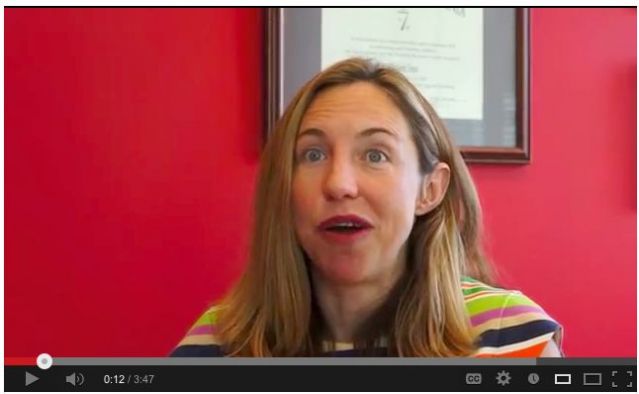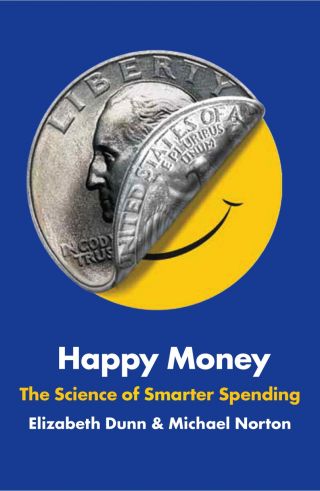Happiness
Are You Spending Money in Ways That Make You Unhappy?
An interview with the author of "Happy Money"
Posted August 19, 2013
When Liz Dunn got her first job, suddenly she found myself making “real adult money.” She began to ponder the question: “What can I do with this money to be happier?” As a psychology professor, she first went to the research literature for an answer, but didn’t find much on this topic. So, she began a series of studies with Lara Aknin and Michael Norton.
They found that most people imagined they could make themselves happy by spending their money on themselves. But in actuality, nothing could be further from the truth. In several different studies, conducted with businesspeople who had just gotten a bonus, and with college students who were handed several dollars on a campus college, they found that people were happier when they gave their money away! Those findings were published in a now highly cited paper in Science in 2008. Since, then, Liz and her colleagues have joined with other researchers to study “the warm glow of giving” in children and in people from other cultures.
When I visited UBC recently, I interviewed Liz about this program of research. Besides discussing the Science findings, Liz and her colleague Kiley Hamlin were kind enough to provide some cute films of little toddlers sharing their Goldfish crackers with an adorable little monkey hand-puppet. We edited it down into an informative 3 ½ min. YouTube video about the happiness-from-giving research, which you can view in How To Buy Happiness.

Consistent with her research findings, Liz gave me a gift during the interview: A copy of the book that she just coauthored with Harvard business professor Michael Norton: Happy Money: The Science of Smarter Spending. The book is what popular scientific psychology books should be: concise, entertaining, informative, and research-based. It contains five chapters organized around five simple principles for spending your money in ways that will make you happier:

1. Buy Experiences. Dunn and Norton note that most people think they will be happier if they splurge on some grand possession, such as a big house in the suburbs. And although folks do say nice things about their new possessions, those goodies don’t seem to have any effect whatsoever on their overall life satisfaction. The new house may have a lovely kitchen and a tree-filled yard, but might also buy you a longer commute. On the other hand, people who spend their money on experiences, such as trips to exotic destinations, meals in nice restaurants, or concerts, tend to buy more happiness for their buck.
2. Make it a Treat. If your income goes up, you might be inclined to drink 8 double chocolate mochas every day, and buy as many new shoes as you can stuff into that big walk-in closet in the new mini-mansion. But hold onto your wallets! They cite research suggesting that you’ll derive more pleasure from everyday experiences if you discipline your spending with a little self-denial. Make it a single mocha, and try occasionally skipping a couple of days before your next one, and you’ll enjoy it more.
3. Buy Time. Outsource the tasks you don’t enjoy, like cleaning your house or yardwork, and give yourself a break. They talk about how corporations are now building recesses into the workday instead of driving people to work every available minute from 9 to 5 and beyond. Combining the last two principles, I often find that I actually crave going back to work after a couple of weeks of vacation.
4. Pay now, consume later. Instead of using your credit card to enjoy something right now, and then feel the pain of paying later, Dunn and Norton recommend reversing the equation. By paying now, then delaying the enjoyment of consumption till later, you get to relish the experience as though it were free. This approach has the not-trivial side-effect of keeping you out of debt, which is a happier way to go than the reverse. You might think this obvious, but I am often surprised by the people I know who really think this particular credit-card purchase will really make them happier. Some of these people keep a giant revolving balance, so they end up paying twice, and feeling stretched later.
5. Invest in others. This is the point of the research Prof. Dunn summarizes in the video How To Buy Happiness. Besides the study demonstrating the joyous effects of giving in toddlers, she describes a study finding the same effect in over 100 cultures around the world. It turns out that, even in poverty-stricken African countries, people who give their material goods away to help others are happier than the Ebenezer Scrooges of the world.
So buy her book, but not for yourself. Make it a gift to a friend or relative. She also told me that she has other research demonstrating that this leads to even more happiness!
-----------------------------
Douglas T. Kenrick is the author of Sex, Murder, and the Meaning of Life: A psychologist investigates how evolution, cognition, and complexity are revolutionizing our view of human nature. Now available in paperback (and in German, Chinese, and Korean, though I haven't quite verified the translations!). His new book: The Rational Animal: How evolution made us smarter than we think (coauthored by Vlad Griskevicius, and available for pre-order on Amazon) will be out this month! Both make excellent gifts, if you want to follow Prof. Dunn's advice about how to spend money to make yourself happy!
Related blogs
7 Good Things About Feeling Bad
If You Pursue Happiness, You May Find Loneliness: Some Sad Facts About Happiness
How to Spend Your Way to Happiness: The Best Things in Life are…?
References
Aknin, L. B., Hamlin, J. K., & Dunn, E. W. (2012). Giving leads to happiness in young children. PLoS ONE, 7, e39211. doi:10.1371/journal.pone.0039211
Aknin, L. B., Barrington-Leigh, C. P., Dunn, E. W., Helliwell, J. F., Burns, J., Biswas-Diener, R., Kemeza, I., Nyende, P., Ashton-James, C.E. & Norton, M. I. (2013). Prosocial spending and well-being: Cross-cultural evidence for a psychological universal. Journal of Personality & Social Psychology, 104, 635–652
Dunn, E. W., Aknin, L. B., & Norton, M. I. (2008, March 21). Spending money on others promotes happiness. Science, 319, 1687–1688. doi:10.1126/science.1150952




